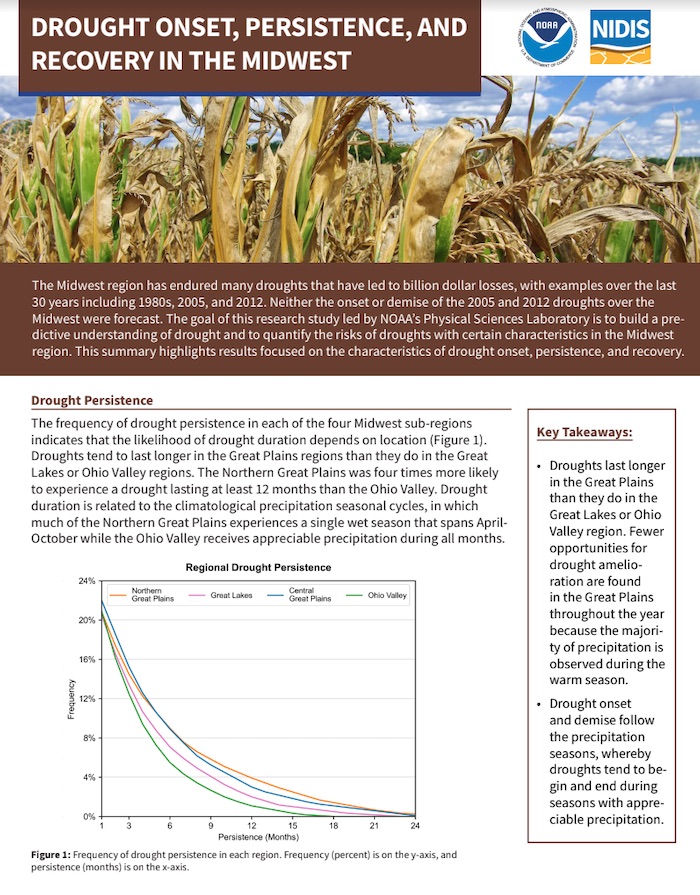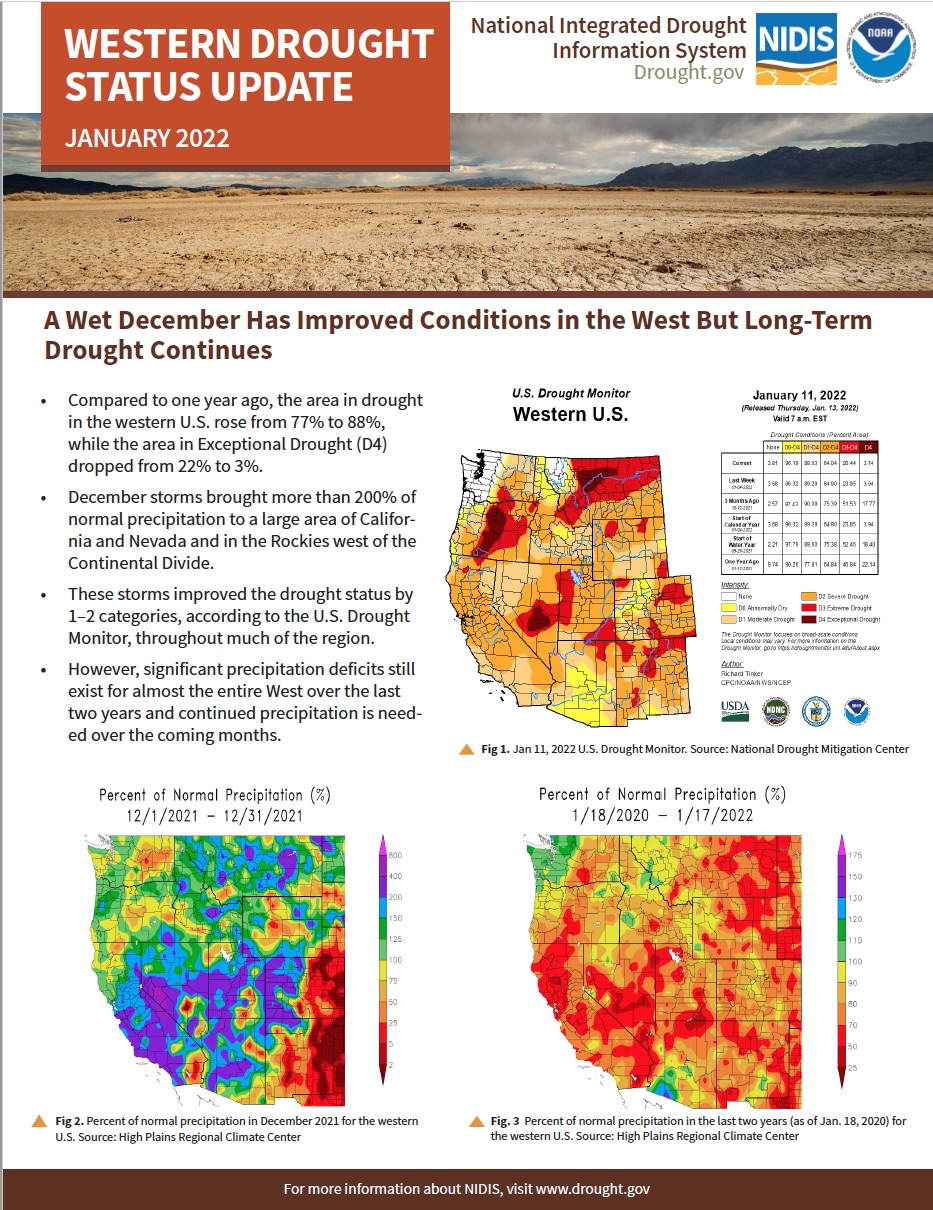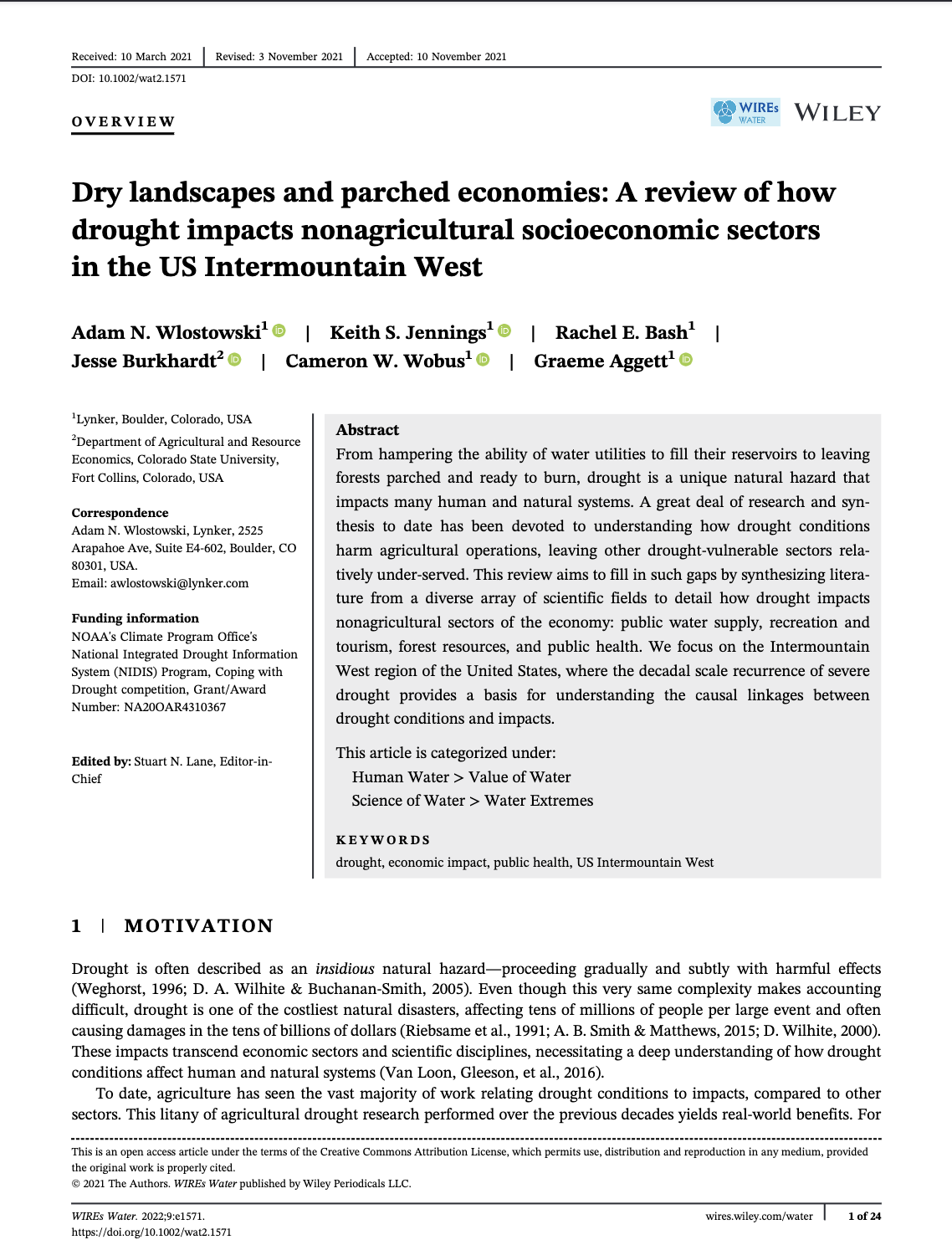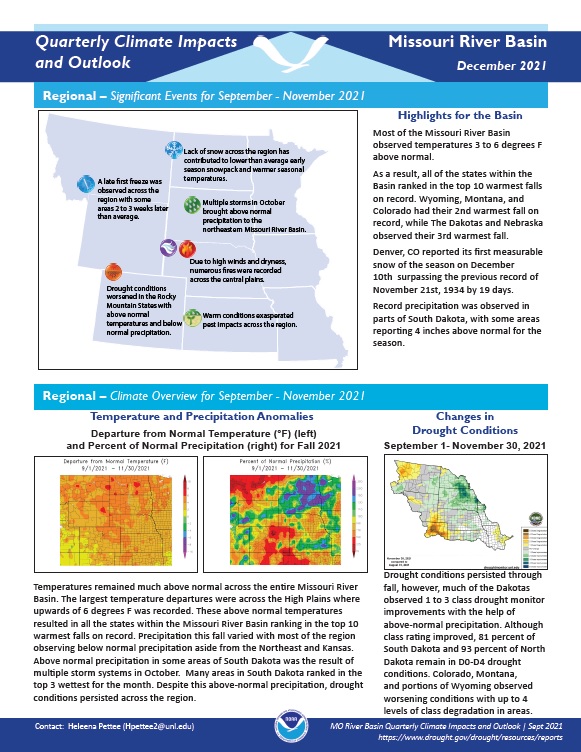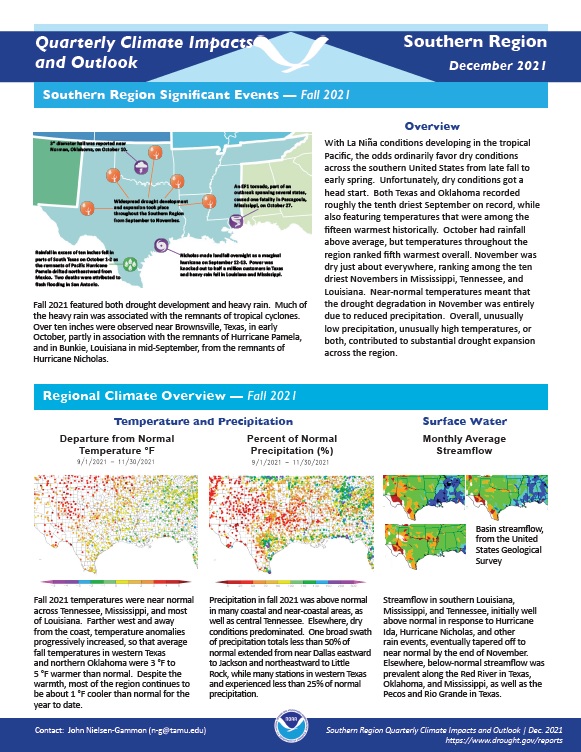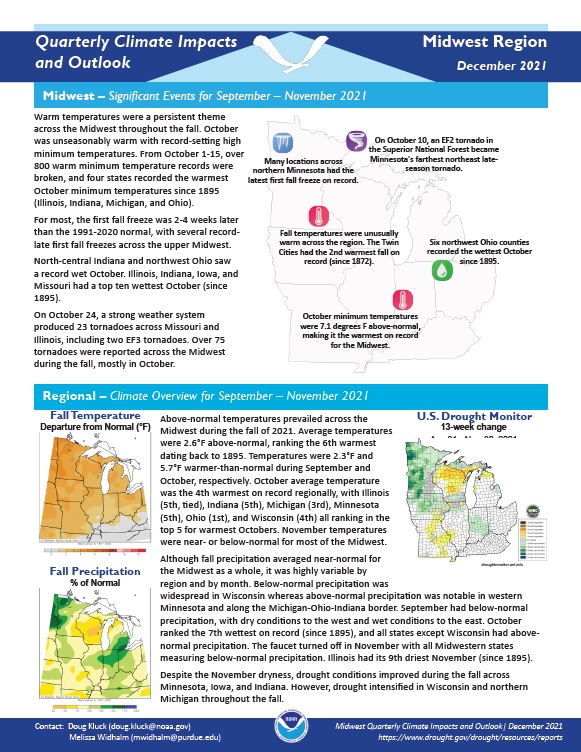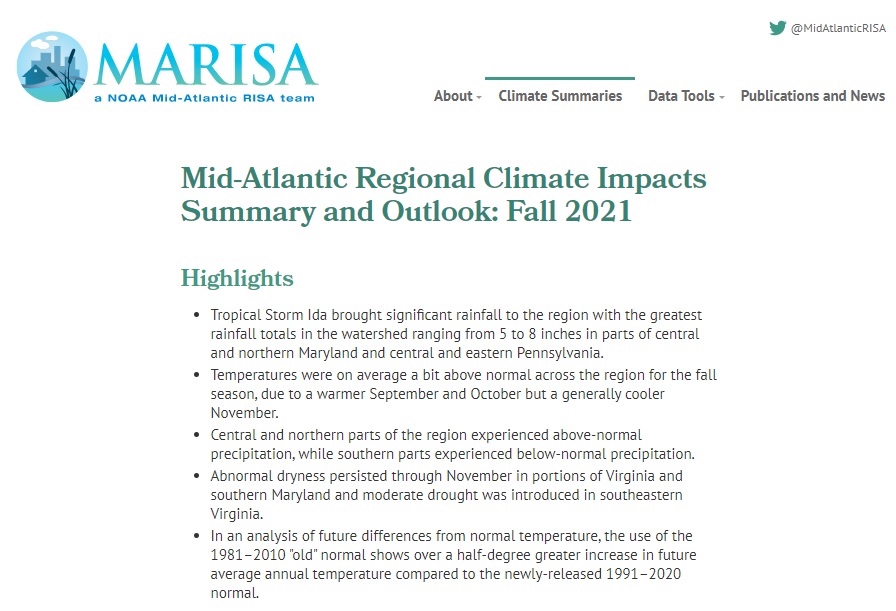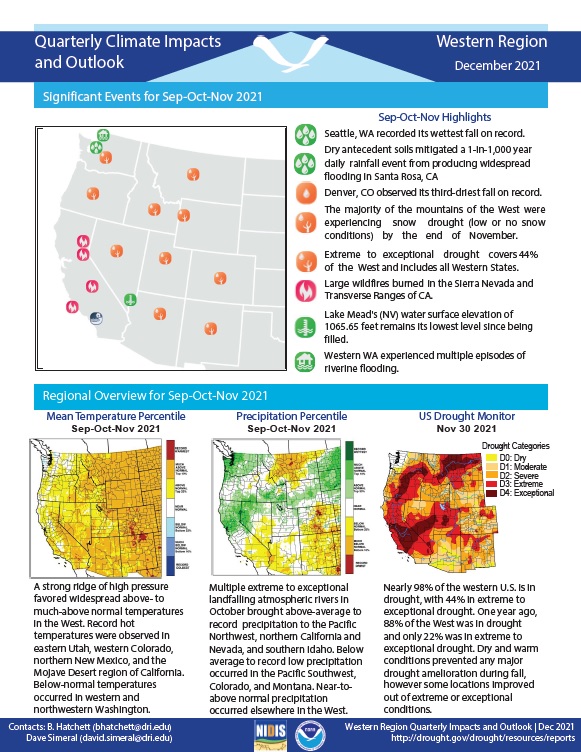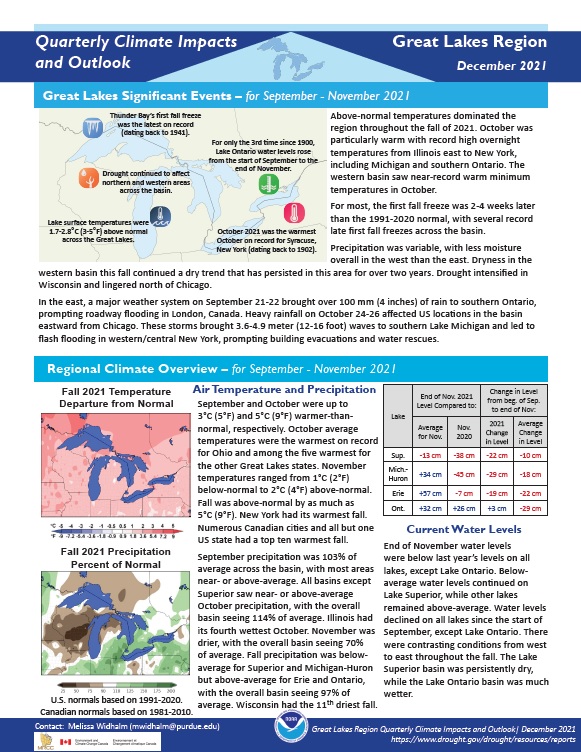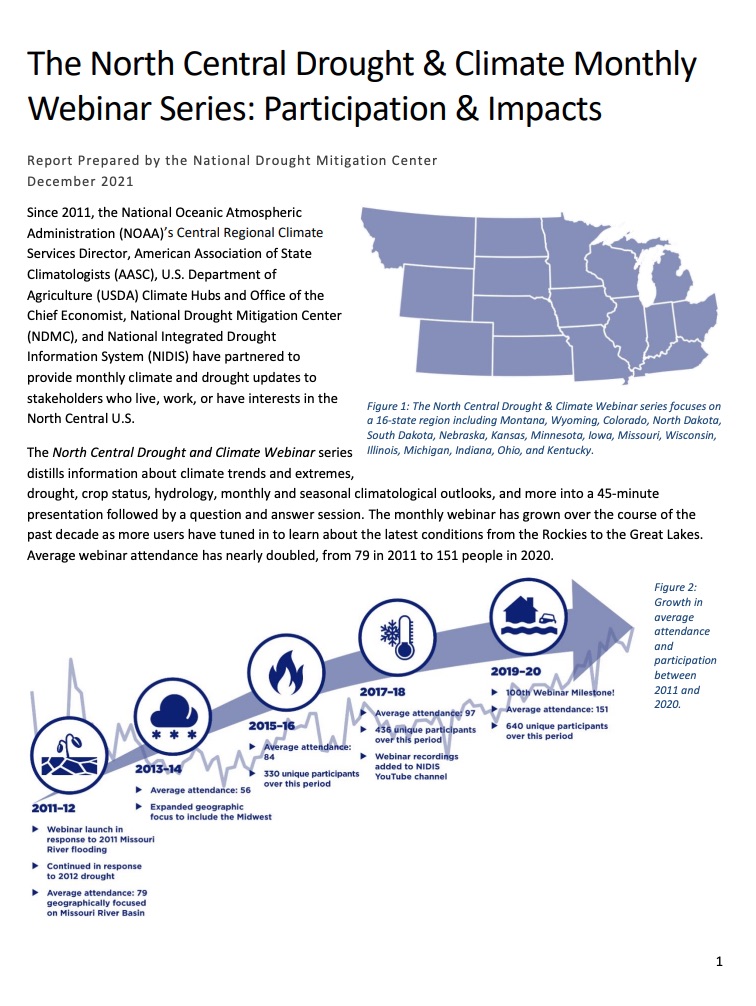The Midwest region has endured many droughts that have led to billion dollar losses, with examples over the last 30 years including 1980s, 2005, and 2012. Neither the onset or demise of the 2005 and 2012 droughts over the Midwest were forecast. The goal of this NIDIS-funded research study led by NOAA’s Physical Sciences Laboratory is to build a predictive understanding of drought and to quantify the risks of droughts with certain characteristics in the Midwest region.
Compared to one year ago, the area in drought in the western U.S. rose from 77% to 88%, while the area in Exceptional Drought (D4) dropped from 22% to 3%. December 2021 storms brought more than 200% of normal precipitation to a large area of California and Nevada and in the Rockies west of the Continental Divide. These storms improved the drought status by 1–2 categories, according to the U.S. Drought Monitor, throughout much of the region.
This study, published in WIREs Water, was funded by NIDIS through the FY 2022 Coping with Drought research competition.
Learn more about this research: Developing Drought Impact Models for the Intermountain West Drought Early Warning System.
Quarterly Climate Impacts and Outlook for the Missouri River Basin September - November 2021. Dated December 2021.
Temperatures remained much above normal across the entire Missouri River Basin. These above normal temperatures resulted in all the states within the Missouri River Basin ranking in the top 10 warmest falls on record. Precipitation this fall varied with most of the region observing below normal precipitation aside from the Northeast and Kansas.
Quarterly Climate Impacts and Outlook for the Southern Region for September - November 2021. Dated December 2021.
Fall temperatures were near normal across Tennessee, Mississippi, and most of Louisiana. Farther west and away from the coast, temperature anomalies progressively increased. Precipitation was above normal in many coastal and near-coastal areas, as well as central Tennessee. Elsewhere, dry conditions predominated.
Quarterly Climate Impacts and Outlook for the Midwest Region for September - November 2021. Dated December 2021.
Above-normal temperatures prevailed across the Midwest during the fall. Average temperatures were 2.6°F above-normal, ranking the 6th warmest dating back to 1895. Although fall precipitation averaged near-normal for the Midwest as a whole, it was highly variable by region and by month.
Quarterly Climate Impacts and Outlook for the Mid-Atlantic Region for September - November 2021. Dated December 2021.
Temperatures were on average a bit above normal across the region for the fall season. Central and northern parts of the region experienced above-normal precipitation, while southern parts experienced below-normal precipitation.
Quarterly Climate Impacts and Outlook for the Western Region for September - November 2021. Dated December 2021.
Quarterly Climate Impacts and Outlook for the Great Lakes Region for September - November 2021. Dated December 2021.
Above-normal temperatures dominated the region throughout the fall. Precipitation was variable, with less moisture overall in the west than the east. Dryness in the western basin this fall continued a dry trend that has persisted in this area for over two years.
Since 2011, the National Oceanic Atmospheric Administration’s Central Regional Climate Services Director, American Association of State Climatologists, U.S. Department of Agriculture Climate Hubs and Office of the Chief Economist, National Drought Mitigation Center (NDMC), and National Integrated Drought Information System have partnered to provide monthly climate and drought updates to stakeholders who live, work, or have interests in the North Central U.S.


